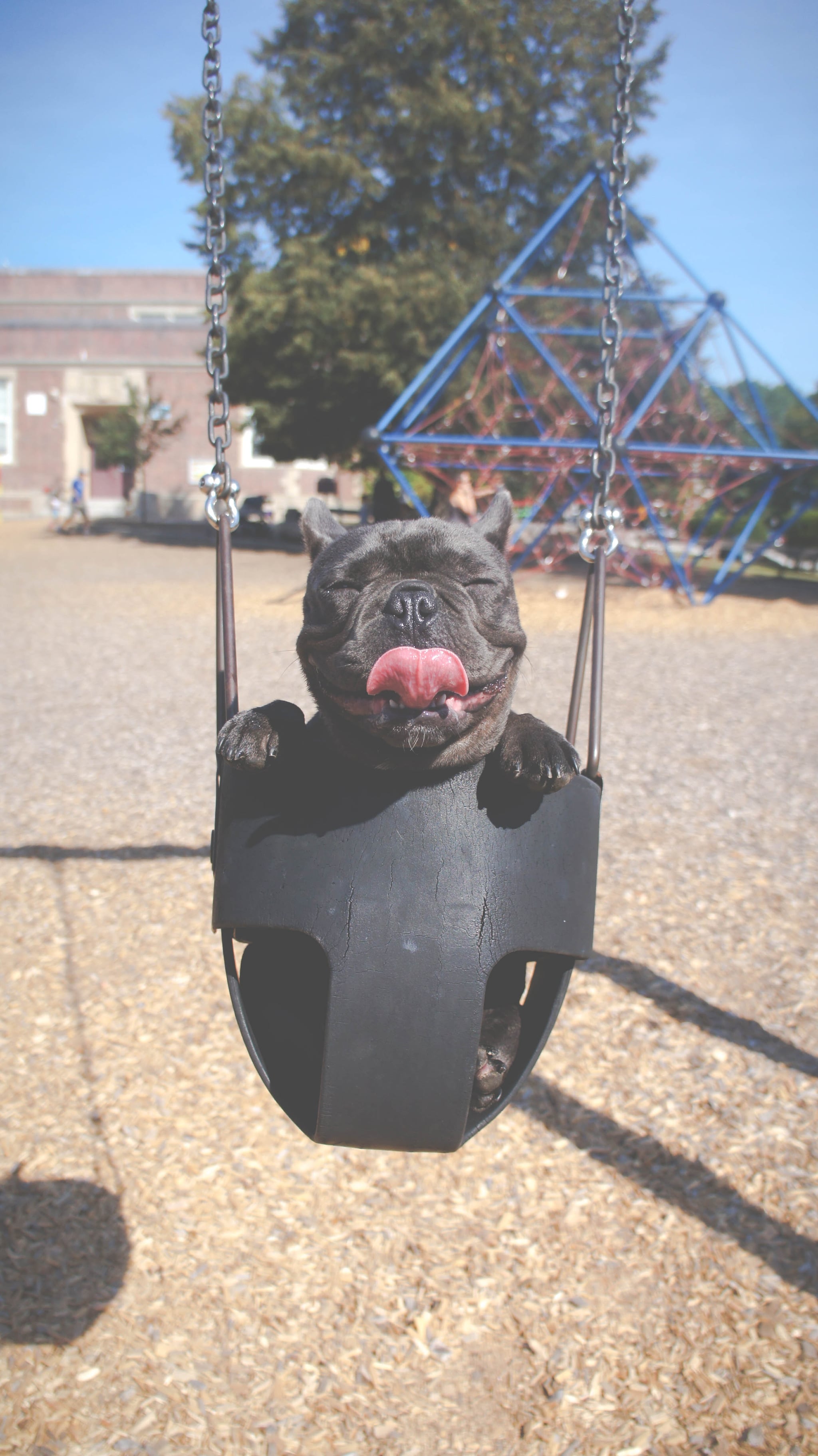
"Who's a good boy?! Who?! Is it you?! It's YOU!" — every dog owner ever, at any time of day, whether or not their boy was technically doing anything to qualify him as "good."
If you're a pet owner, particularly of the canine variety, you know the voice that the above comments are said in very well. It's the voice that had never come out of your mouth before you got a dog and started treating it like your little fur baby, but now, it's just the way you sound when you're talking to your sweet pooch. And apparently, there's a scientific reason for it.
Scientists at the University of York looked at previous studies that suggested talking to puppies in a high-pitched voice as you would to babies improved engagement between dog and owner, and decided to test that theory with new experiments [2] and older dogs. They sought to determine if there's a reason humans talk to dogs like babies [3] and if there are any useful benefits to doing so for either dog or human or both.
"A special speech register, known as infant-directed speech, is thought to aid language acquisition and improve the way a human baby bonds with an adult. This form of speech is known to share some similarities with the way in which humans talk to their pet dogs, known as dog-directed speech," said Dr. Katie Slocombe from the University of York's Department of Psychology. "This high-pitched rhythmic speech is common in human interactions with dogs in western cultures, but there isn't a great deal known about whether it benefits a dog in the same way that it does a baby. We wanted to look at this question and see whether social bonding between animals and humans was influenced by the type and content of the communication."
To test their theory [5], dogs were placed in a room with real humans, and several speech tests were conducted. First, one human used dog-directed speech to talk to the pup, then another human spoke the same phrases in a normal voice. They tested the dog's attention while the humans were speaking, then it was able to choose which human it wanted to spend time with [6].
Second, they tested the actual words that are typically said to dogs to see if it's the voice or the words the dogs are responding to. One human would use non-dog speech in a dog-directed voice (so, that high-pitched voice saying something like, "Can you take the garbage out?") and another would use dog speech — "you're a good boy," "let's go for a walk!" — in a non-dog-directed voice.
"We found that adult dogs were more likely to want to interact and spend time with the speaker that used dog-directed speech with dog-related content, than they did those that used adult-directed speech with no dog-related content," said Alex Benjamin, a PhD student from the University's Department of Psychology. "When we mixed up the two types of speech and content, the dogs showed no preference for one speaker over the other. This suggests that adult dogs need to hear dog-relevant words spoken in a high-pitched emotional voice in order to find it relevant."
So there you have it, folks: using baby-talk [8], or dog-directed speech, to talk to your pup like a baby [9] is totally a thing and definitely brings you closer to them.

